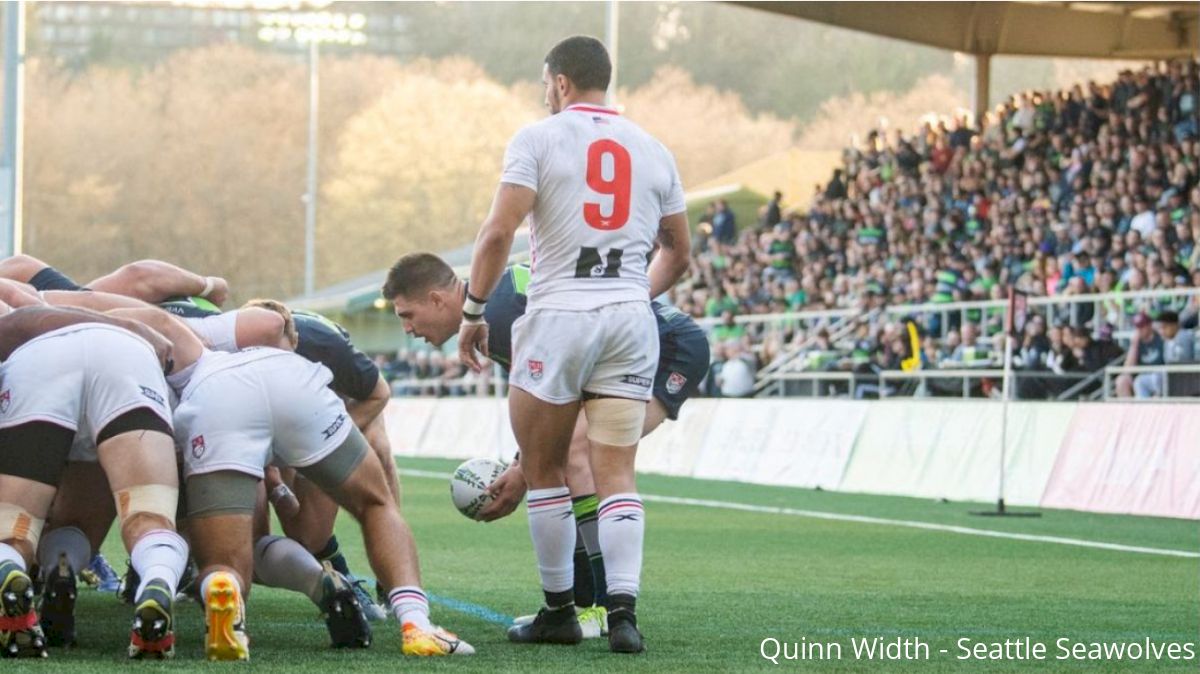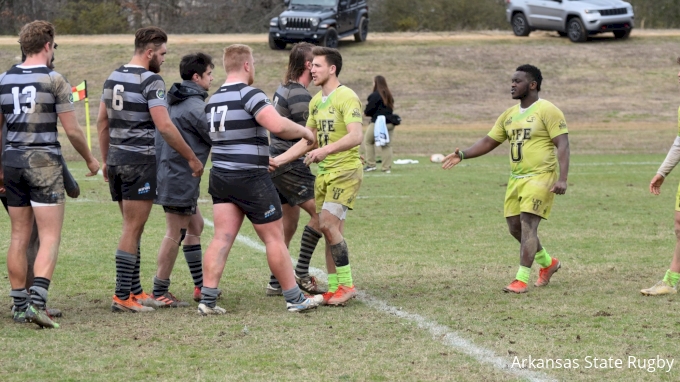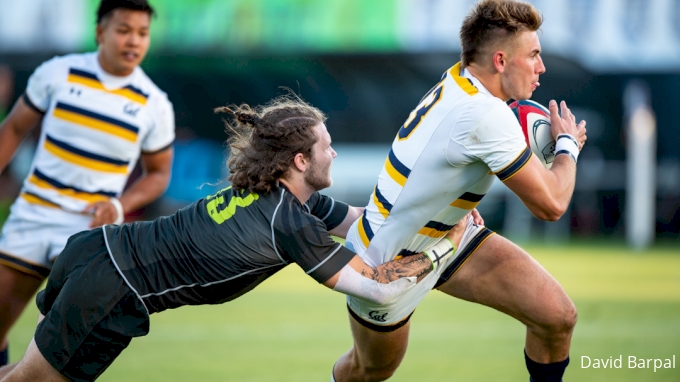How Legal Is This MLR Draft?
How Legal Is This MLR Draft?
The MLR draft is an exciting prospect, but there are some red flags associated with it.

There has been much buzz lately in rugby circles around America surrounding the advent of a Major League Rugby draft. Though prevalent across the already-established American sporting landscape, this concept is brand new to rugby, and has many people excited for what may lie ahead.
But is it really legal? Does it leave the league open to lawsuits? Does it encourage the best college players in the US to forego careers in other fields to go fulltime rugby?
Here I am going to highlight a few key concerns that have me wondering how MLR is going to navigate the legal aspects of a draft, and how the league plans to address its apparently discriminatory guidelines.
There is no players union
There are a number of ways in which the NFL, NBA, MLB and NHL drafts violate the Sherman Antitrust Act on the grounds of restriction of trade, and anti-competitive dealing. Graduating players, or those who leave school early, are not allowed to market their own talent and shop around for the best job. They are confined to the team that drafts them, and thus cannot negotiate with other suitors like any other job applicant can.

The reason, however, that this has survived legal challenges (eg Maurice Clarett) is that these respective leagues have players unions that come to a collective bargaining agreement with the owners that waives their rights to fair trade. That CBA (Collective Bargaining Agreement) generally covers such things as a minimum salary, pension plan, disability payments, restricted practice hours, etc. What allows the players to be comfortable enough to accept terms of a draft is the fact that any entry salary into one of the big leagues is subject to a minimum, and likely going to massively exceed the entry salary they could receive getting any other kind of job. Therefore, they can reasonably waive their rights to fair trade and not suffer too badly.
Major League Rugby though is most certainly not issuing out contracts that exceed what players could receive on the open job market. In fact, they're more than likely not much above minimum wage. Consider also that the players being drafted belong to one of the most highly marketable groups in the US population - college grads.
While drafts seem like a fun way to engage fans and create buzz about new signings, realistically they are a way for owners to control negotiations and drive down salary wages. By signing exclusive rights to a player right out of college, they and only they get to negotiate with the player, meaning there is no competition for the signing. It's anti-competitive dealing. The player can refuse to sign for a low wage, but then is forced to sit out an entire year and make no money at all.
In the case of rugby in the United States, some fresh-out-of-college players who are itching for a chance with the national team are probably not willing to sit out of high-level action for a whole year. They're put into a position where they sign with said team for said amount, or take their chances and play elsewhere for a year, hoping to catch the attention of selectors and get a crack with the national team that way.
Before moving forward with the draft, a Major League Rugby players union must be formed and actually agree to the arbitrary rules that have been laid out.
It discriminates against American College Players
While anyone else in the entire world can openly negotiate with any MLR team they choose, players who played collegiate rugby in America within the past year can only negotiate with the team that drafts them. Furthermore, they can only play Major League Rugby if they enter the draft, otherwise they sit out a whole year. High school grad? Go ahead and negotiate with any team you like, put them into a bidding war for your services. Didn't get drafted? Go ahead. Grad from a foreign university? Go ahead. Professional player from Australia? Go ahead. Football player from US college? Go ahead. Never went to college? Go ahead. Spent 4 years working on your rugby game at Cal, or Life, or Big State U? Hold on there buddy, you'll play where we tell you, or you can't play in this league at all for a year.

All of the teams in the MLR are located in job-rich cities, so it's not impossible for college graduates to get a job and play rugby in the city where they are drafted, but it limits their options greatly. Guys with college debt need to be making more money than they can just by playing rugby to start paying off their loans. Can a 23 year old graduate with a wife and possibly a child afford to be living in New York City, making $15-20k a year? I don't think so.
It's crazy to assume you can uproot someone at such a young age and move them to some random city in the country without offering a salary close to what they can make with a number of other jobs they can get.
But the MLR needs parity, right?
This is another justification for the draft in other US sports. The Browns get the first pick every year, don't they? It helps to make them competitive with the Pats. Unfortunately for MLR, that argument doesn't hold water. With a few exceptions, recent college grads aren't really impact players in MLR.
The impact players here are imported foreign veteran pros, and it is very unlikely that forcing College Player X to go to Austin, or an expansion team like Dallas, is going to make them competitive. In the NBA or the NFL, the vast majority of players come from US colleges, so getting the best players from US colleges makes a difference. Drafted college grads will make a very small proportion of MLR rosters - a college draft will make virtually no difference to league-wide parity.
Does the draft help the development of Rugby in the US?
It's hard to come up with a way in which the draft is beneficial to the players. Press releases have made it clear that the terms were hashed out between the MLR and the College Rugby Association of America, headed by D1A commissioner Kevin Battle. Do you see any player representation there? CRAA and MLR made sure their own interests were well looked after. Players could not be drafted until they had played three years of college rugby or graduated, and players could not play MLR unless submitting to the draft.
But where is there any consideration for whether this draft encourages the best young talent in the US to stay with the game? Do I go into the job market in my home town with my degree from Cal, or do I make an enforced move across the country to play rugby for very little money, without even having the opportunity to talk to teams where I want to live? Do I pursue playing for the US Eagles or do I get on with my life, maybe playing a bit of club rugby? At the very least, the draft makes the decision to stick with rugby a little more difficult.
So where does this leave us? MLR has a draft of dubious legality, potentially hurts the development of the best young players in the country, and doesn't help the league achieve competitive parity. It helps the clubs keep their costs down, and it encourages college players to stay in school. At the end of the day you have to ask - is the MLR actually interested in signing young US players? Maybe cheap imports are what they have in mind, and the draft is simply window dressing.